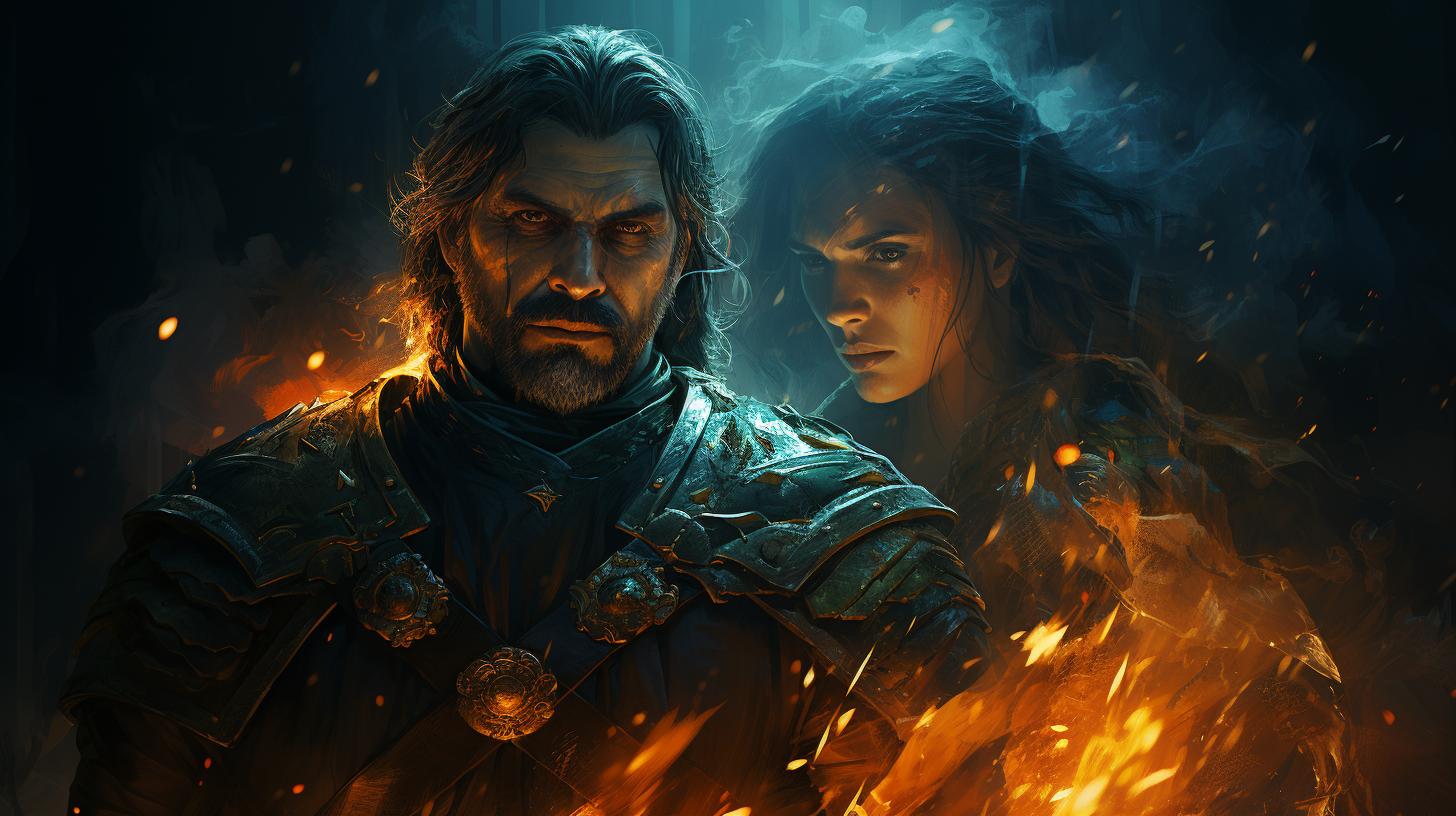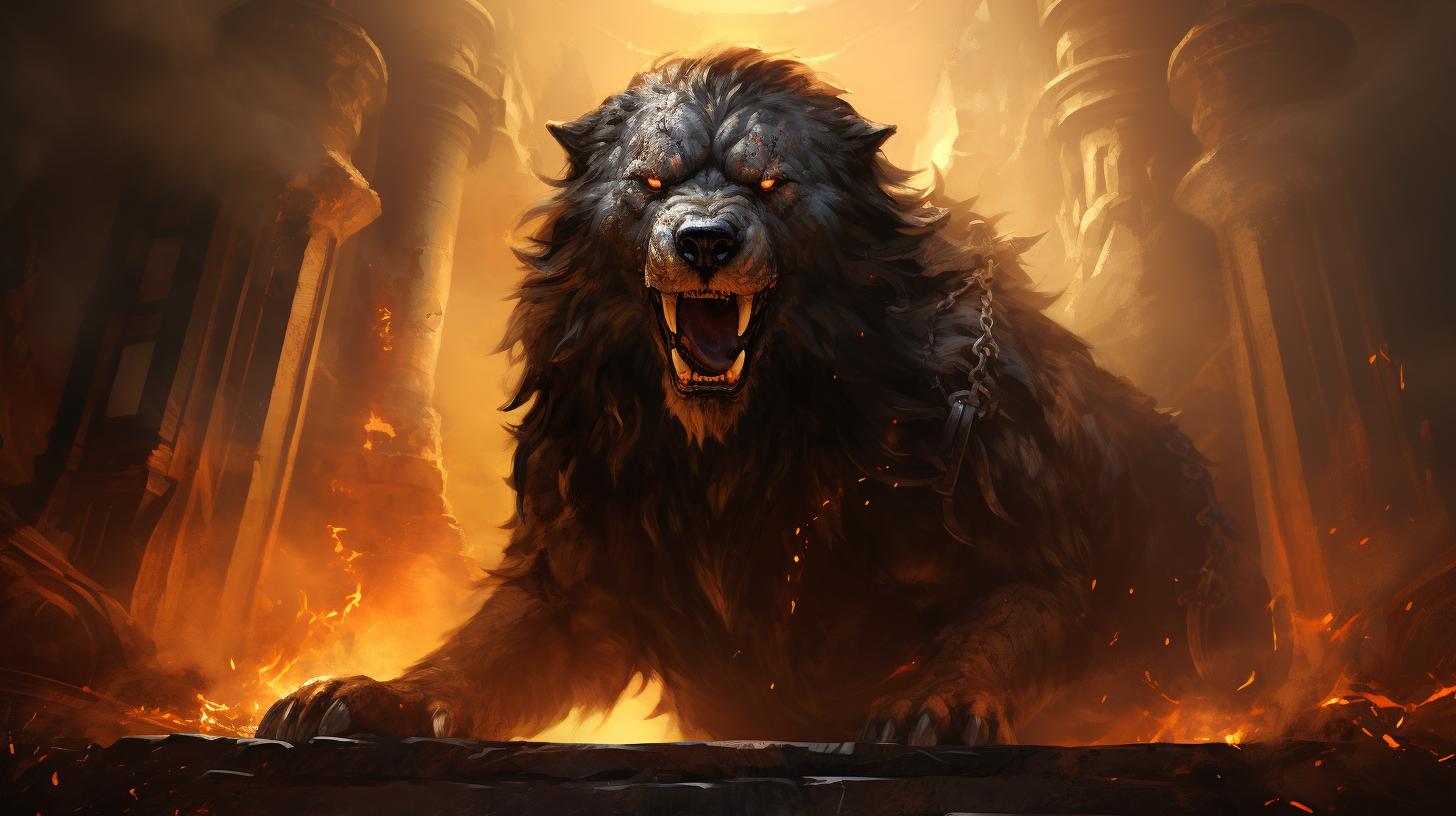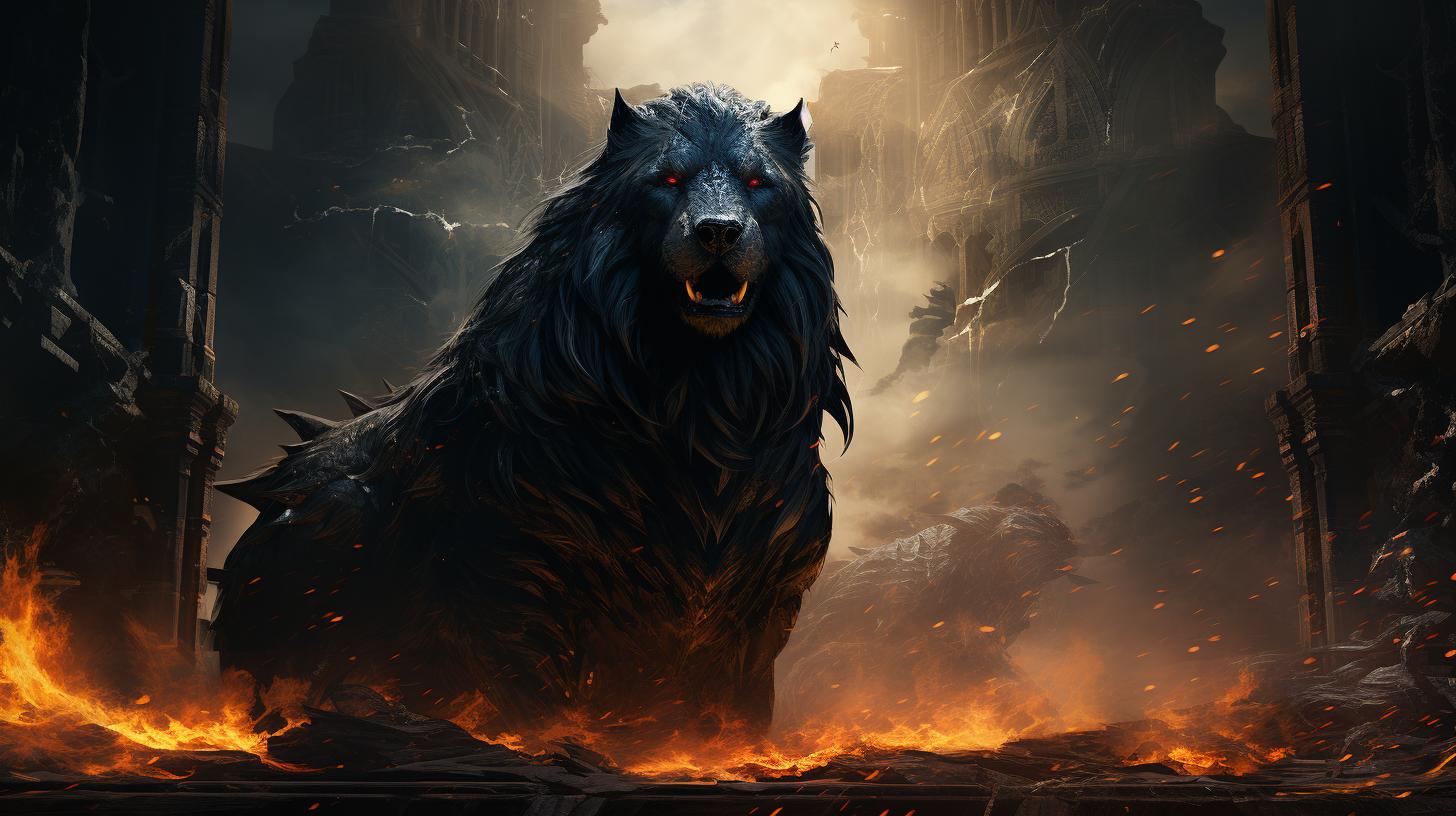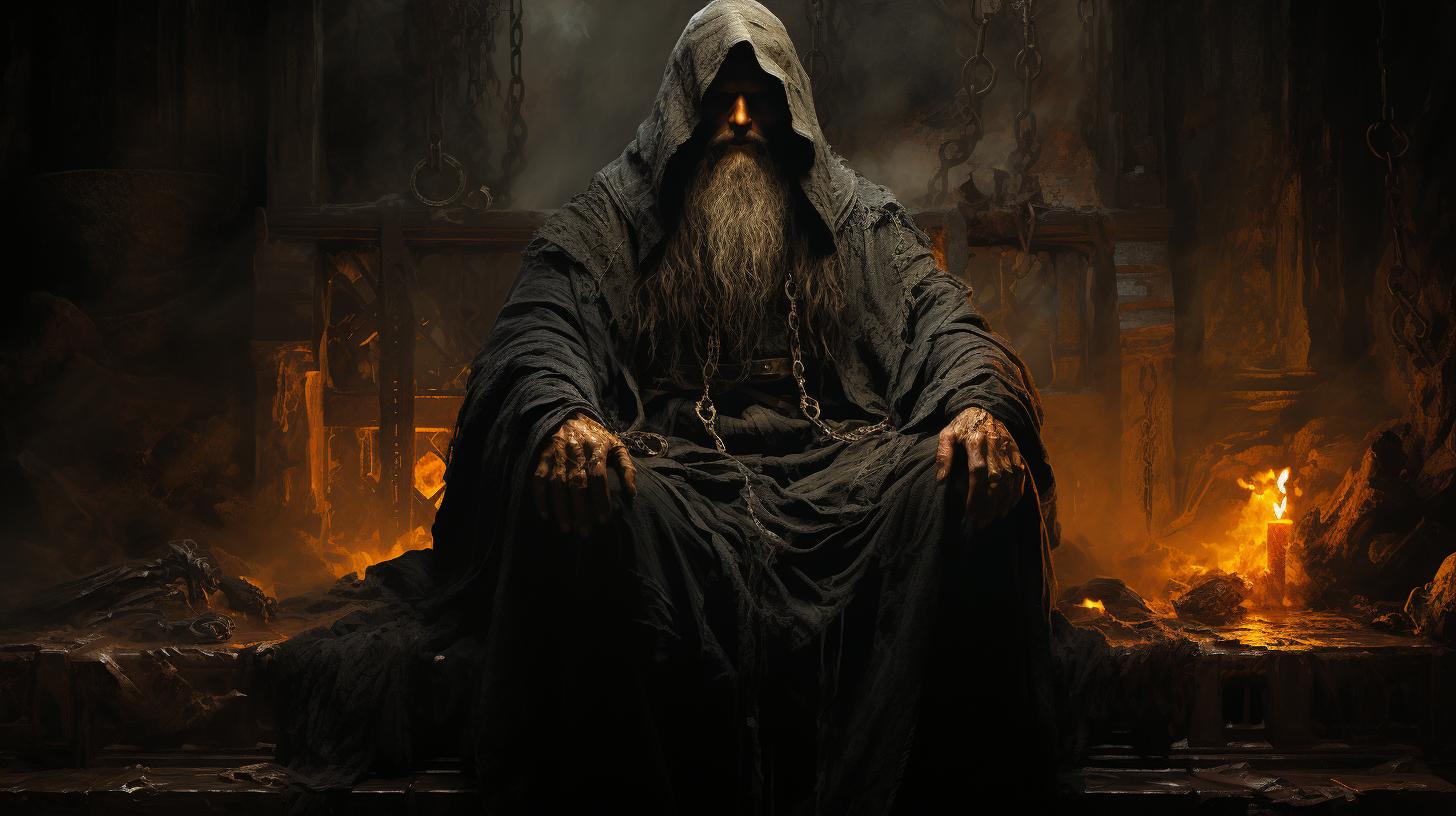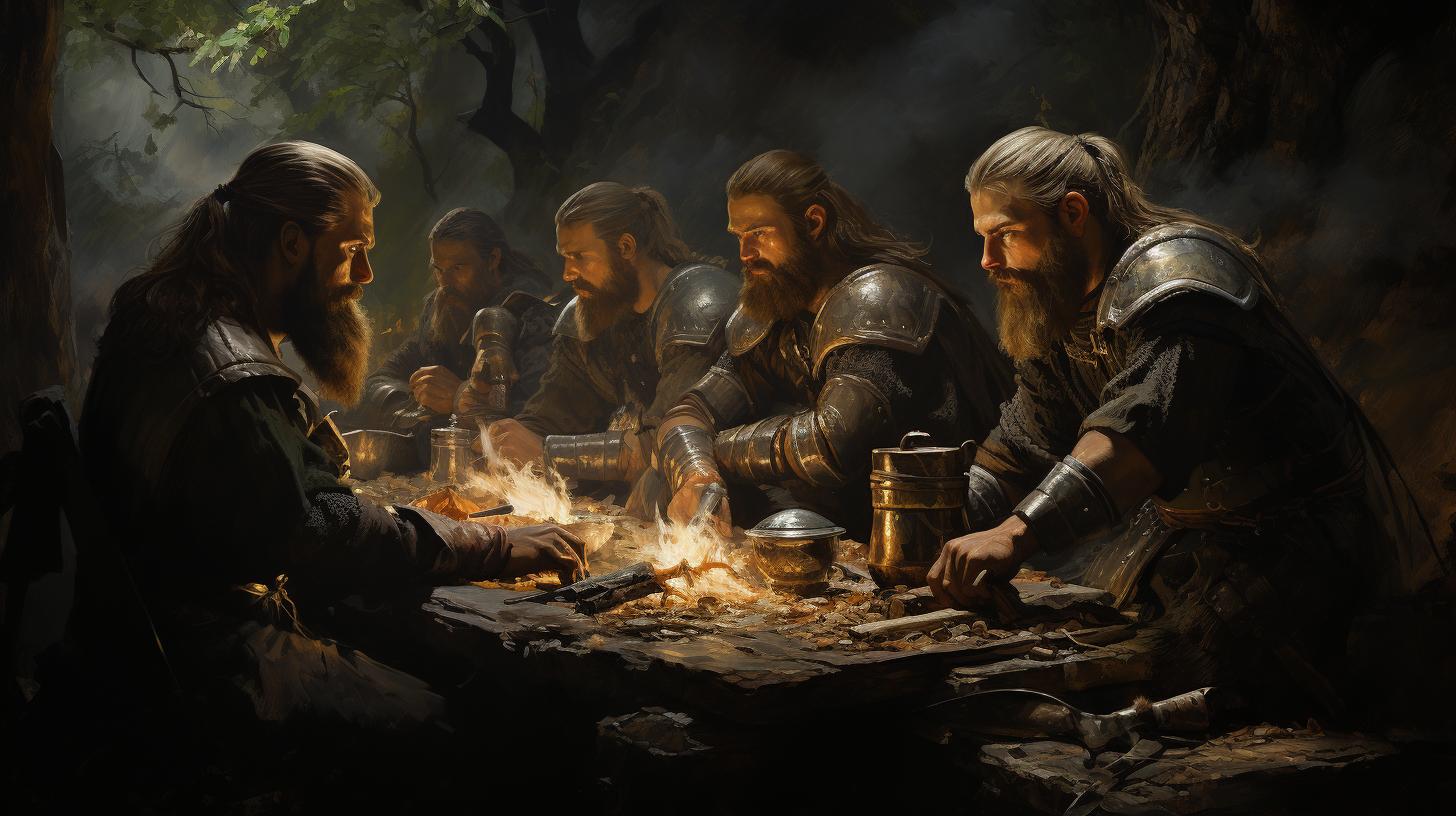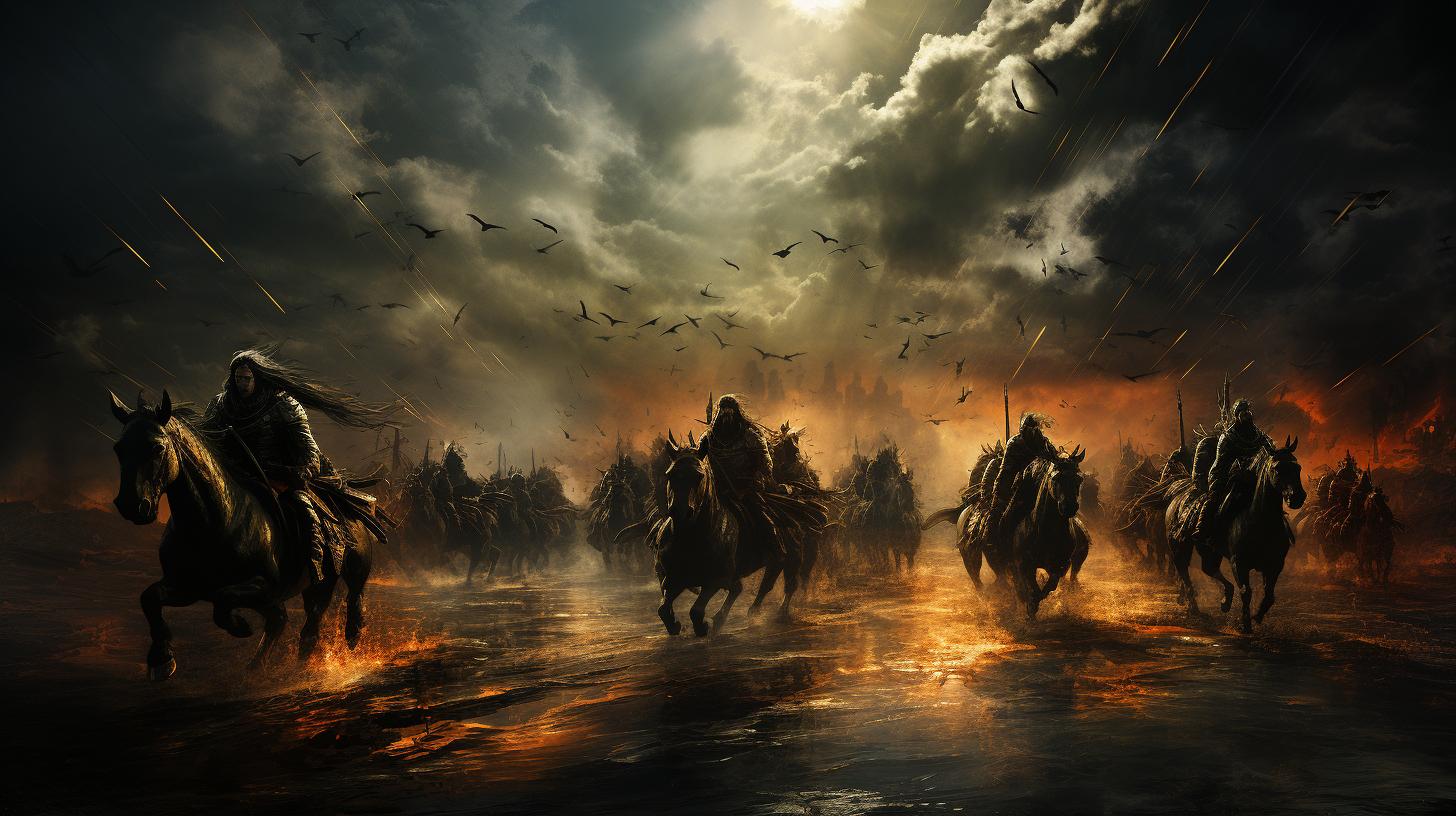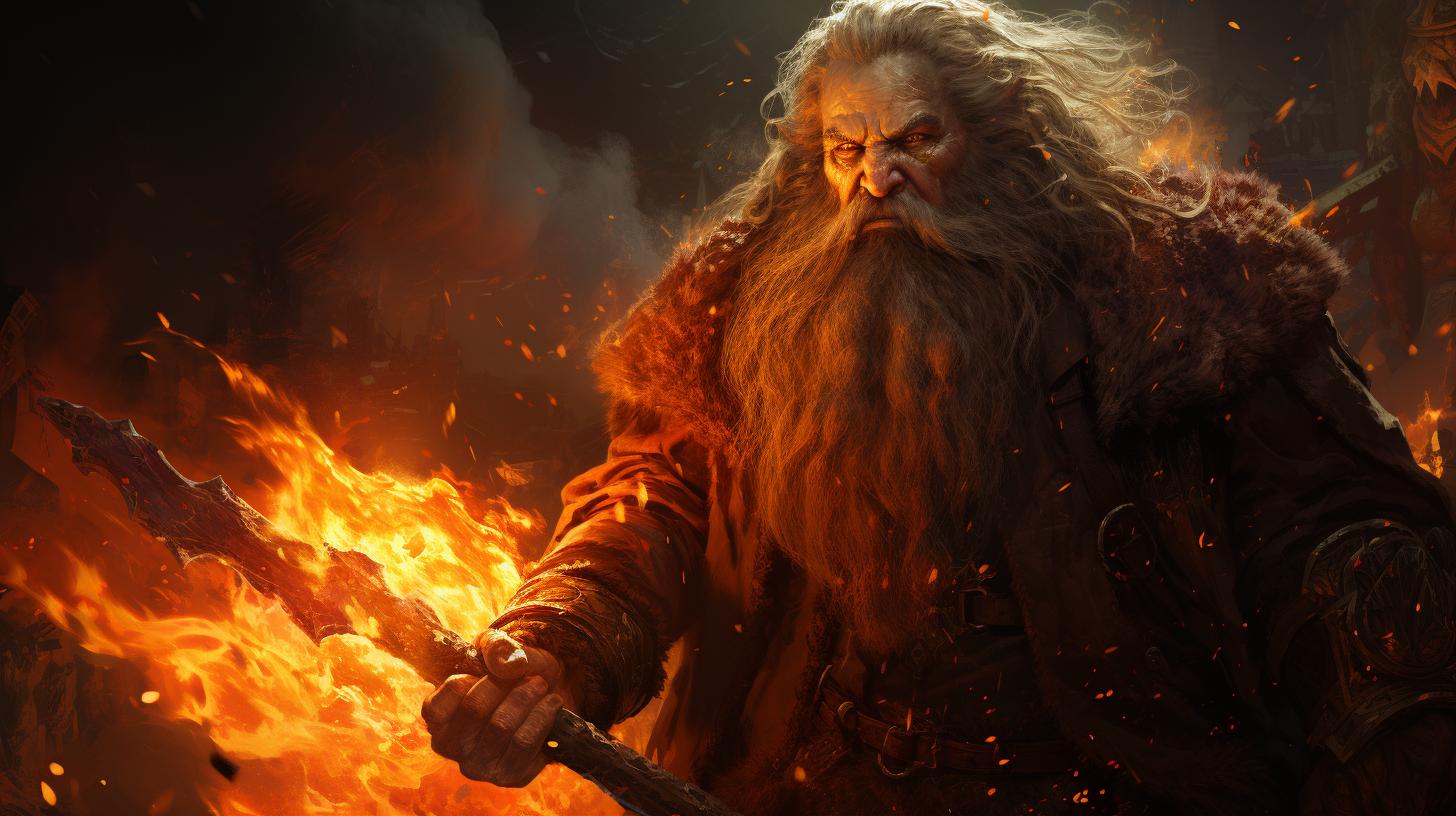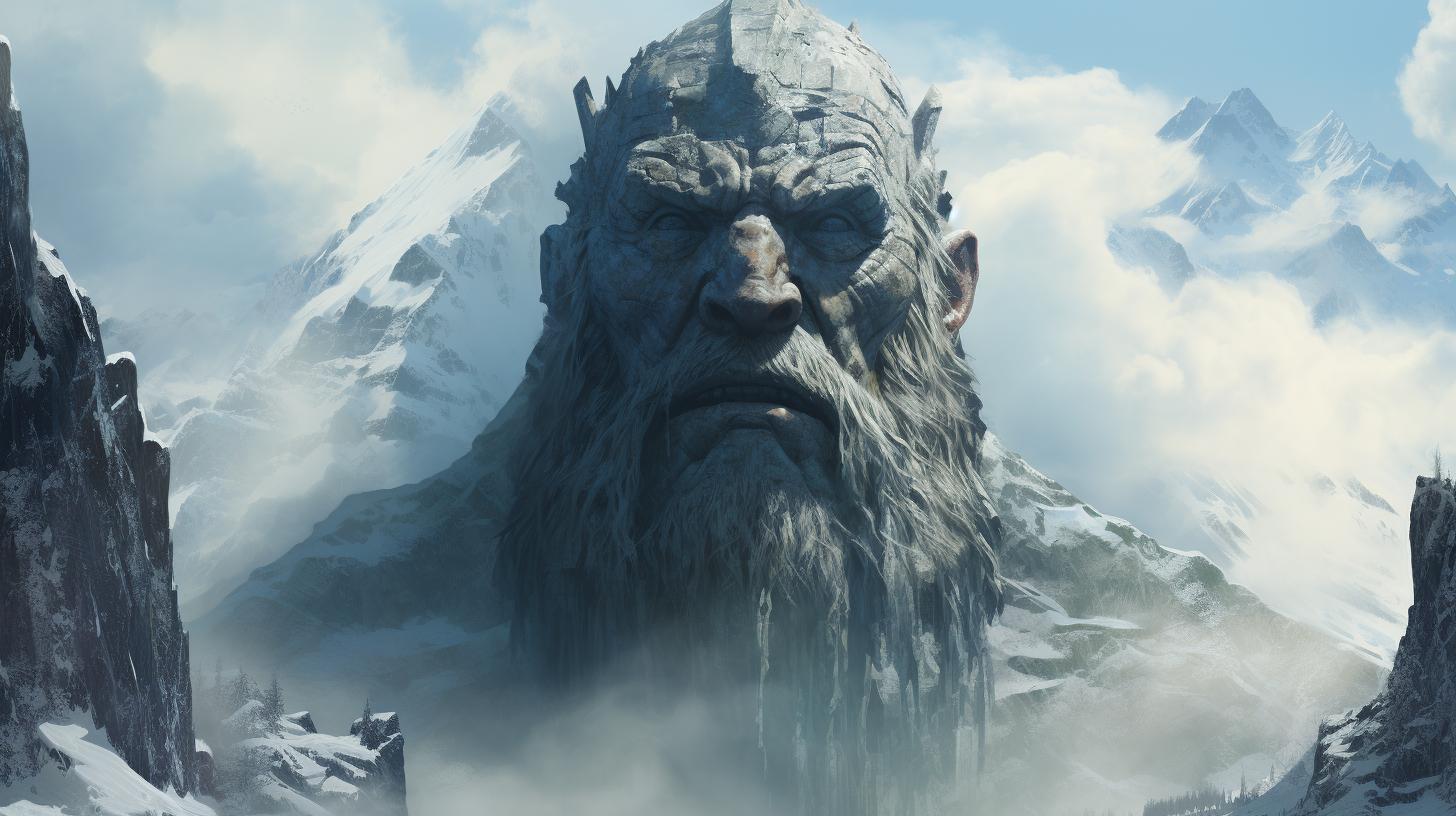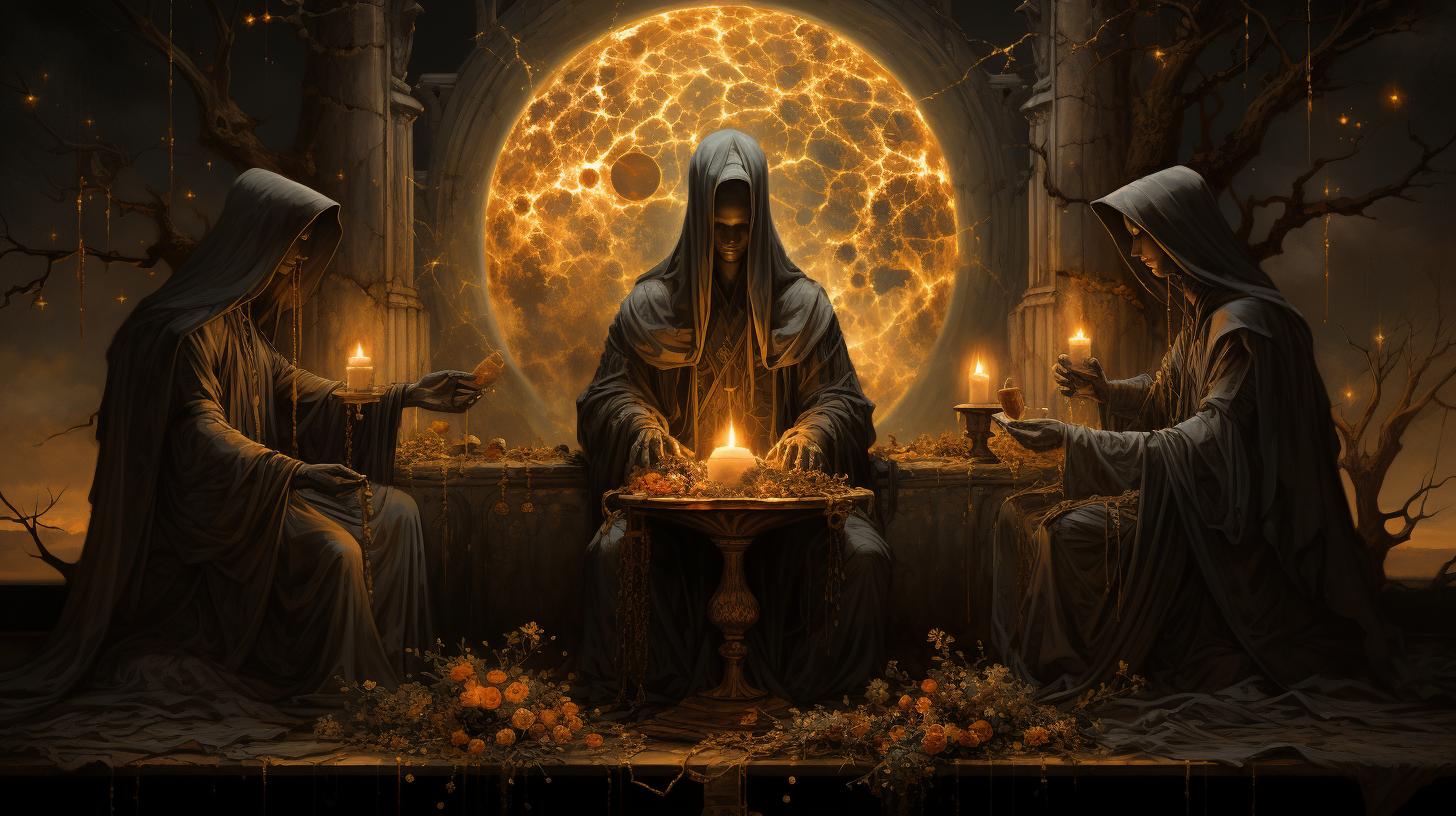Narfi and Vali in Norse Mythology: A Dive into the Intriguing Sons of Loki
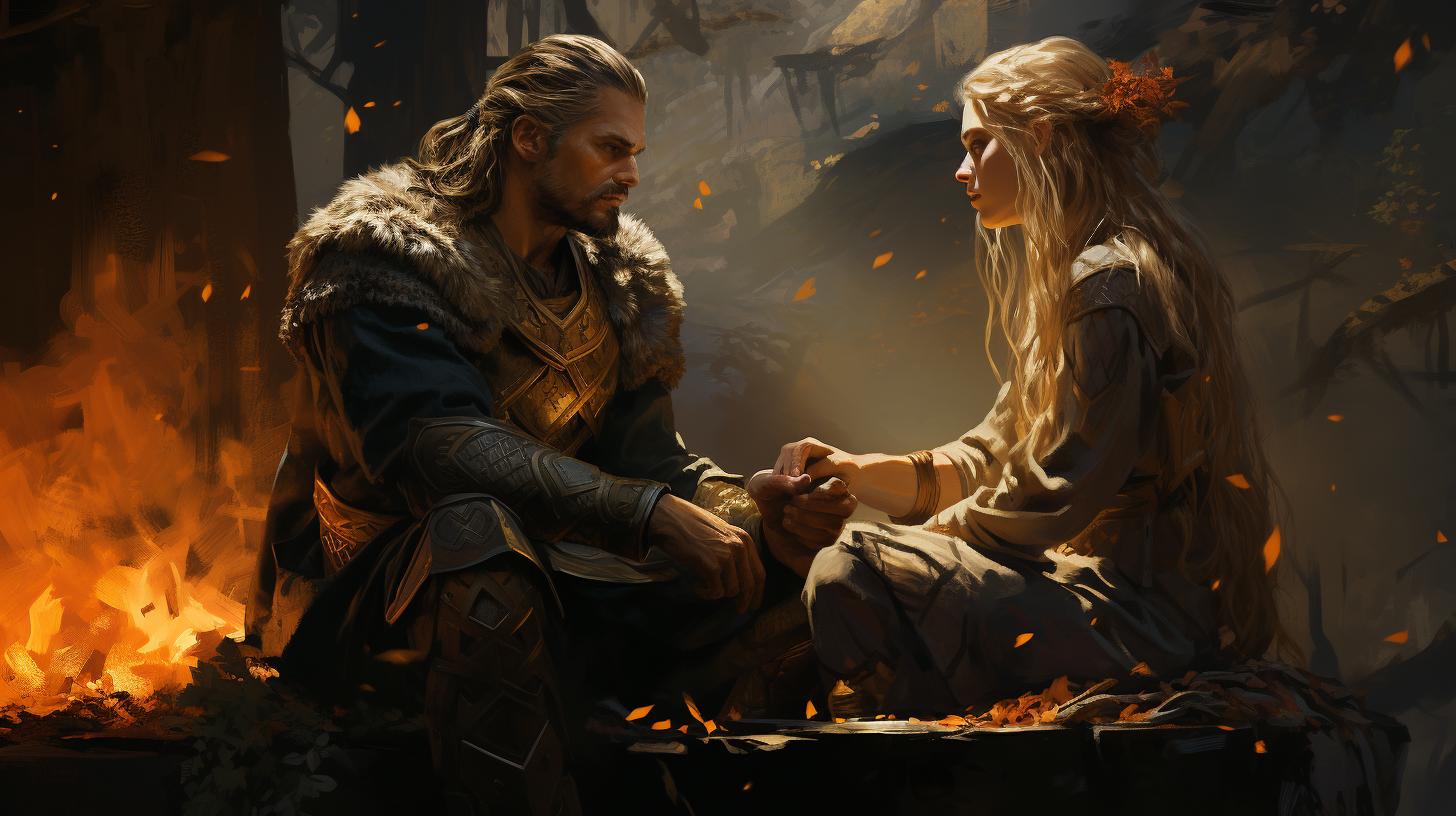
Narfi and Vali, the intriguing sons of Loki in Norse mythology, hold a significant but enigmatic place in the Norse pantheon. While Narfi’s role remains lesser known, Vali’s origins and significance are subjects of debate.
Loki’s mischievous nature and his involvement in Baldr’s tragic fate further deepen the complexity of their stories. Conflicting accounts surround their parentage, with some sources suggesting Narfi as Loki’s son, while others propose Vali as the offspring of Odin and Rindr.
As siblings to Fenrir, Jörmungandr, and Hel, their lives were marked by fear and exile. The controversial death of Narfi remains a mystery, with Fenrir being a possible culprit.
Understanding the Sons of Loki
Within Norse mythology, the sons of Loki, Narfi and Vali, hold intriguing roles and origins that contribute to the complex tapestry of Norse cosmology. This section delves into their individual stories, shedding light on their lesser-known details and uncovering the significance behind their existence.
Narfi: The Lesser Known Son
Narfi, in the realm of Norse mythology, is a figure shrouded in mystery. Despite his unclear role, it is believed that he is one of Loki’s sons, born to the mischievous god and Sigyn. Unlike his notable siblings, Narfi does not possess specific godly attributes or assigned domains according to the Eddas of Snorri Sturluson.
However, he does inherit many negative traits from Loki, including cunning and deceit.
Vali: Origins and Significance
Vali, another son of Loki, has a more intriguing origin story that varies across different sources. While some texts inaccurately state that Narfi and Vali are Loki’s sons, other accounts suggest that Vali is the son of Odin and the giantess Rindr.
This would make him the half-brother of Baldr and Hodr.
Vali’s significance lies within his connection to the tragic fate of Baldr, Odin’s beloved son. As revenge for Baldr’s death, Vali was destined to avenge his half-brother and act as an instrument of divine justice.
While his role in Norse mythology may be overshadowed by other deities, Vali’s story holds great weight in the overall narrative.
In conclusion, exploring the sons of Loki, Narfi and Vali, brings us closer to understanding the intricate web of Norse mythology.
Narfi, with his enigmatic role and connection to Loki’s legacy, adds a layer of complexity to the pantheon. On the other hand, Vali’s origins and the significance of his role in the aftermath of Baldr’s demise contribute to the ongoing themes of justice and retribution within the Norse cosmology.
Loki’s Role in Norse Cosmology
In Norse mythology, Loki is a complex figure whose actions have far-reaching consequences. His mischievous nature often leads him to create chaos and disrupt the order of the gods. Loki is known for his cunning, deceit, and shape-shifting abilities, allowing him to challenge the norms of the divine realm.
Loki’s Mischievous Nature
Loki’s mischievous nature is central to his character. He constantly challenges the stability and harmony of the gods, pushing boundaries and causing disruptions. Loki’s pranks and trickery test the gods’ patience, leading to tension and conflict within the divine realm.
His ability to transform into different forms adds to his mischief. Loki uses his shape-shifting powers to deceive others, complicating their interactions and causing confusion. His deceptive nature makes it difficult for the gods to trust him fully, further fueling their suspicions and animosity towards him.
Loki’s Involvement in Baldr’s Death
One of Loki’s most significant contributions to Norse mythology is his involvement in the death of Baldr, the beloved son of Odin. Loki’s trickery and manipulation led to the death of Baldr, triggering a series of events that would ultimately lead to Ragnarök, the cataclysmic battle that brings about the end of the world.
Loki, jealous of Baldr’s popularity and invulnerability, used his knowledge of Baldr’s weakness to orchestrate his demise. By giving a mistletoe dart to the blind god Hodr, Loki ensured that it would be used unknowingly to kill Baldr.
This act of treachery sent shockwaves through the divine realm and caused grief among the gods.
Loki’s involvement in Baldr’s death showcases his destructive and manipulative nature. It reveals his willingness to go to extreme lengths to challenge the established order and disrupt the peace among the gods, ultimately leading to catastrophic consequences for the entire Norse cosmology.
The Conflicting Origins of Narfi and Vali
The origins of Narfi and Vali, the enigmatic sons of Loki in Norse mythology, have been a subject of debate and conflicting accounts. Let’s explore two different perspectives:
Narfi: Son of Loki and Sigyn?
According to some sources, Narfi is believed to be the son of Loki and Sigyn. Sigyn, often associated with loyalty and compassion, was Loki’s faithful wife.
Their union resulted in the birth of Narfi, who inherited traits from both his parents. However, the exact nature of Narfi’s role in Norse mythology remains elusive, as there is limited information about him in the Eddas of Snorri Sturluson.
Vali: Son of Odin and Rindr?
Alternatively, some accounts suggest that Vali is the son of Odin, the Allfather, and Rindr, a giantess. This perspective portrays Vali as a half-brother to Baldr and Hodr, further complicating the family dynamics.
As Odin’s son, Vali would have inherited his father’s strength and courage, making him a formidable figure in Norse mythology. However, the conflicting origins of Vali also contribute to the uncertainty surrounding his character and significance.
In conclusion, the true origins of Narfi and Vali in Norse mythology remain a mystery, with differing accounts presenting them as offspring of Loki and Sigyn or Odin and Rindr.
These conflicting narratives add intrigue and complexity to their roles within the Norse pantheon, leaving us to ponder their true identities and contributions to the mythological tapestry.
Narfi and Vali’s Relationship with Other Deities
The mythology of Narfi and Vali in Norse mythology is intertwined with their relationships with other deities, both as siblings and through their offspring.
Let’s explore their connections in more detail:
Siblings and Half-Siblings
Narfi and Vali share an intricate web of siblinghood in the Norse pantheon. As sons of Loki and Sigyn, they are half-brothers to powerful entities such as Fenrir, the colossal wolf, Jörmungandr, the monstrous serpent, and Hel, the ruler of the realm of the dead.
Their half-sibling relationships demonstrate the complex nature of their family ties and their place within the divine hierarchy.
The Fate of Narfi and Vali’s Offspring
While Narfi and Vali both played significant roles in Norse mythology, their offspring also left their mark on the mythos. Vali, in particular, had a notable child named Nari, who is sometimes linked to the tragic death of Baldr.
The detail surrounding their offspring’s fate, however, is unclear and subject to differing accounts. It is said that their children lived challenging lives due to the prophecies foretelling the end of times.
Jörmungandr, for instance, was cast into the ocean, Hel was banished to Niflheim, and Fenrir was bound in Asgard. The destiny of Narfi’s lineage remains shrouded in mystery and speculation.
Overall, Narfi and Vali’s interactions with their siblings and their impact through their offspring add depth and complexity to their roles in Norse mythology.
Narfi and Vali’s Involvement in Ragnarök
Narfi and Vali, the enigmatic sons of Loki, play significant roles in the cataclysmic event known as Ragnarök in Norse mythology.
This apocalyptic event is marked by the downfall of the gods and the destruction of the world as we know it.
The Prophecies Surrounding Ragnarök
Ragnarök is foretold by various prophecies, including the Völuspá, which reveals the sequence of events leading to the end of the world. These prophecies mention the involvement of key mythological figures, including Narfi and Vali.
According to the Völuspá, Narfi and Vali represent opposing forces in the impending battle.
Narfi’s inherited cunning and deceit, reminiscent of his father Loki, align him with the chaotic and destructive forces that seek to bring about the end of the world. Vali, on the other hand, represents the more noble aspects of the gods, seeking to uphold order and protect the divine realm.
Narfi and Vali’s Roles in the Cataclysmic Events
As Ragnarök unfolds, the ultimate conflict between the gods and their adversaries ensues. Narfi’s association with chaos and deceit likely leads him to join the forces of destruction, while Vali fights alongside the gods to defend their realm.
Narfi’s cunning and trickery may be utilized to sow discord and confusion among the gods, contributing to their downfall. On the other hand, Vali’s valor and determination make him a formidable ally in the defense against the encroaching forces of chaos.
While specific details of their individual actions during Ragnarök are scarce and subject to interpretation, their conflicting natures and origins highlight their contrasting roles in the battle that ultimately shapes the fate of the universe.
As the world succumbs to the chaos of Ragnarök, Narfi and Vali’s involvement showcases the complex interplay between the gods, their offspring, and the forces that bring about the end of times.
The Controversial Death of Narfi
The death of Narfi, one of the sons of Loki, is a topic that remains shrouded in mystery and conflicting accounts. There are various versions and interpretations surrounding his demise, leaving scholars and enthusiasts puzzled.
Let’s delve into the different narratives that surround the controversial end of Narfi’s life.
Conflicting Accounts and Interpretations
When it comes to the death of Narfi, Norse mythology presents us with contradictory information. Some tales suggest that Vali, another son of Loki, is responsible for taking Narfi’s life.
However, other accounts propose a more ominous fate for Narfi, depicting him transforming into a wolf and attacking his own brother, Nari. These differing versions challenge our understanding of Narfi’s ultimate demise within the mythological context.
Fenrir: The Possible Culprit
Among the many figures in Norse mythology, Fenrir, the colossal wolf and another offspring of Loki, emerges as a potential perpetrator in Narfi’s fate. As one of the key antagonists of the Ragnarök prophecy, Fenrir’s violent nature and connections to Loki make him a conceivable candidate for Narfi’s demise.
Although no definitive account solely attributes Narfi’s death to Fenrir, the correlation between the two suggests a plausible connection.
.

